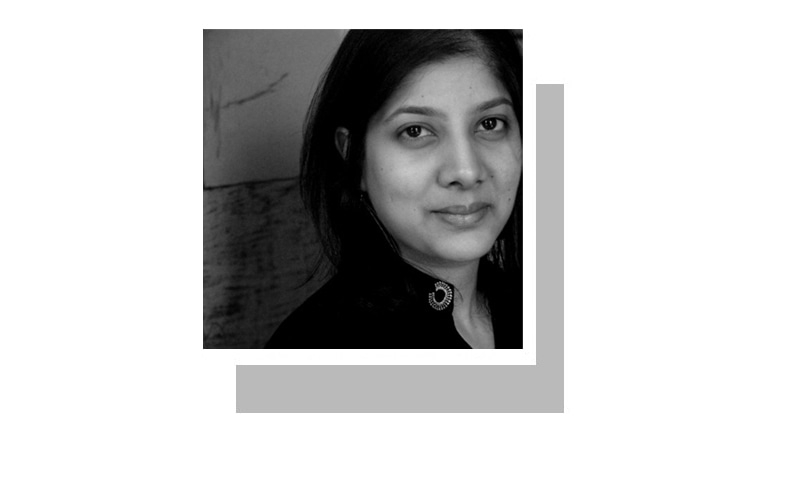
ON India’s Republic Day, the Burj Khalifa in Dubai was lit in the saffron, white and green of the Indian flag, the national colours flaming as lights sparkled around them. The musical fountains at the base of the world’s tallest buildings danced to the tunes of Jai Ho and Vande Mataram. Meanwhile, in Delhi, Sheikh Mohammad bin Zayed Al Nahyan, the crown prince of Abu Dhabi, attended the Republic Day parade as chief guest, having spent the past two days signing 14 MoUs with the Indian government in areas spanning energy, defence, maritime and infrastructure development.
Many Pakistanis watched on in dismay, confused by the sight of a long-standing ally (from the ummah no less) literally take an arch rival into a warm embrace. But it is a sight they may become accustomed to.
Growing UAE-India ties exemplify a broader trend that could accelerate in this era of shifting alliances and economic relationships, spurred on by Donald Trump’s erratic policies. Pakistan’s traditional allies have long been implementing policies aimed at ‘de-hyphenating’ their India-Pakistan relationships; that is, engaging in simultaneous diplomatic, security and economic initiatives with the two countries rather than choosing between them on the basis of religious affinity or historical links.
Growing UAE-India ties exemplify a broader trend.
Our partners’ motivations are clear: they seek ties with the world’s largest democracy with its rapidly growing economy, but they do not want to isolate Pakistan, which many of them perceive to be a tinderbox. The question is whether Pakistan’s foreign policy is mature and agile enough to handle this new reality — not just the de-hyphenation of our allies’ South Asian policies but also their imbalance in their perception of the two countries.
One major indication that Pakistan is willing to accept evolving regional geopolitics came in 2015, when our parliament voted against sending troops to Yemen to support the Saudi-led and Emirati-backed conflict there. It does Pakistan credit that it did not embroil itself in that crisis merely to stay ‘on side’ with its Gulf partners.
Much of that decision was driven by domestic security considerations in terms of sectarian dynamics and the involvement of our security forces in Operation Zarb-i-Azb. But on some level Pakistan realised that no amount of fealty to our Arab friends — however reckless — would prevent a regional rebalancing, given that economics would trump communal loyalties no matter what.
The numbers speak for themselves: bilateral trade between the UAE and India in 2015 stood at $60 billion, compared to $7bn with Pakistan.
But there are few other indications that Pakistan is willing to adjust to new regional dynamics. It’s most rapidly deepening and expanding relationship is with China, a traditional ally that is willing to pick sides, whether on the matter of Indian membership of the Nuclear Suppliers Group, the blacklisting of Maulana Masood Azhar at the UN Security Council, or Indian bellicosity regarding the Indus Water Treaty. The all-eggs-in-the-China-basket approach that Pakistan is increasingly taking suggests that it may still be expecting similar biases from other partners.
More broadly, Pakistan wishes to be seen as an emerging market at a strategic location, with a pro-business culture and a consumer class of up to 70 million. But our allies’ de-hyphenation policies leave little room for this narrative, and are instead dominated by concerns about what they perceive as Pakistan’s role in militancy, despite two years of sustained counterterrorism operations.
The state’s failure to clarify its position regarding the Afghan Taliban and anti-India groups, compounded by our interior minister’s recent muddled comments about sectarian militancy, could result in security considerations overshadowing diplomatic and economic opportunities — even with the most stalwart of old friends.
The UAE has committed to work alongside India to counter regional militancy and supports its membership of an expanded UN Security Council. Under Trump, the US could reframe Pakistan almost exclusively through the lens of religiously inspired militancy. New partners we are currently seeking to woo, like Russia, have a firm stance against militancy and have existing links with India and other regional actors like Iran focused around such considerations. Even our all-weather friend China has made its zero-tolerance for Uighur militancy — and any other that threatens its economic investments — clear.
To survive the seismic shifts in regional geopolitics, Pakistan will have to accept its allies’ new positions, and recognise that its foreign policy prospects will remain intrinsically linked with its security policies. Without making the right choices with regards to eradicating militancy and extremism, we will struggle to maintain old friendships and forge new ones that can help us prosper.
The writer is a freelance journalist.
Twitter: @humayusuf
Published in Dawn January 30th, 2017












































